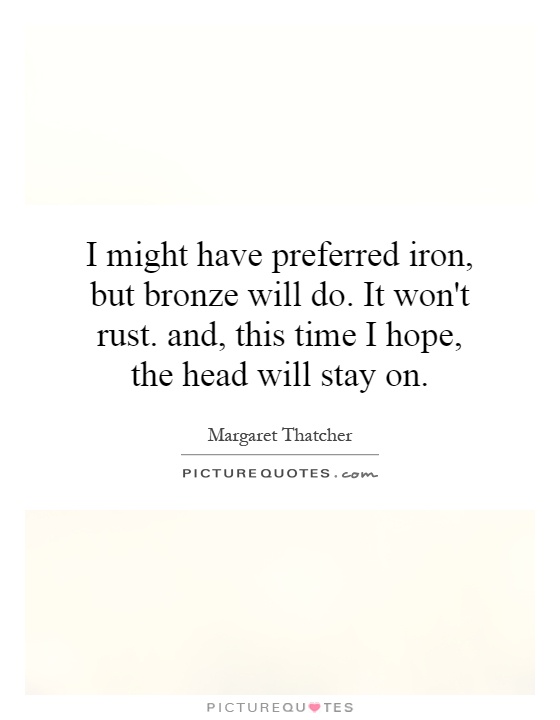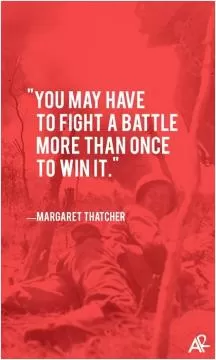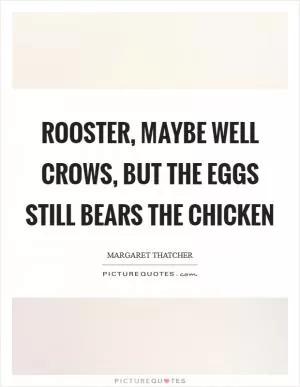I might have preferred iron, but bronze will do. It won't rust. and, this time I hope, the head will stay on

I might have preferred iron, but bronze will do. It won't rust. and, this time I hope, the head will stay on
Margaret Thatcher, the Iron Lady of British politics, was known for her strong and unwavering leadership style. She was often compared to iron for her tough and unyielding nature, earning her the nickname "Iron Lady" during her time as Prime Minister of the United Kingdom. However, despite her preference for iron, Thatcher's legacy is not without its flaws and controversies.Thatcher's tenure as Prime Minister was marked by a series of bold and controversial decisions that polarized the British public. Her economic policies, known as Thatcherism, aimed to reduce the role of the state in the economy and promote free-market principles. While these policies were praised by some for revitalizing the British economy, they also led to widespread unemployment and social unrest, particularly in the industrial heartlands of the country.
Thatcher's uncompromising leadership style also earned her a reputation for being divisive and confrontational. She famously declared, "The lady's not for turning," indicating her refusal to back down from her policies or compromise with her opponents. This stubbornness and determination were both admired and criticized, depending on one's political perspective.
Despite her preference for iron, Thatcher's legacy is not without its vulnerabilities. The phrase "I might have preferred iron, but bronze will do. It won't rust, and, this time I hope, the head will stay on" reflects a sense of resignation and acceptance of the limitations of her leadership. While bronze may not be as strong or durable as iron, it is still a valuable and resilient material that can withstand the test of time.












 Friendship Quotes
Friendship Quotes Love Quotes
Love Quotes Life Quotes
Life Quotes Funny Quotes
Funny Quotes Motivational Quotes
Motivational Quotes Inspirational Quotes
Inspirational Quotes